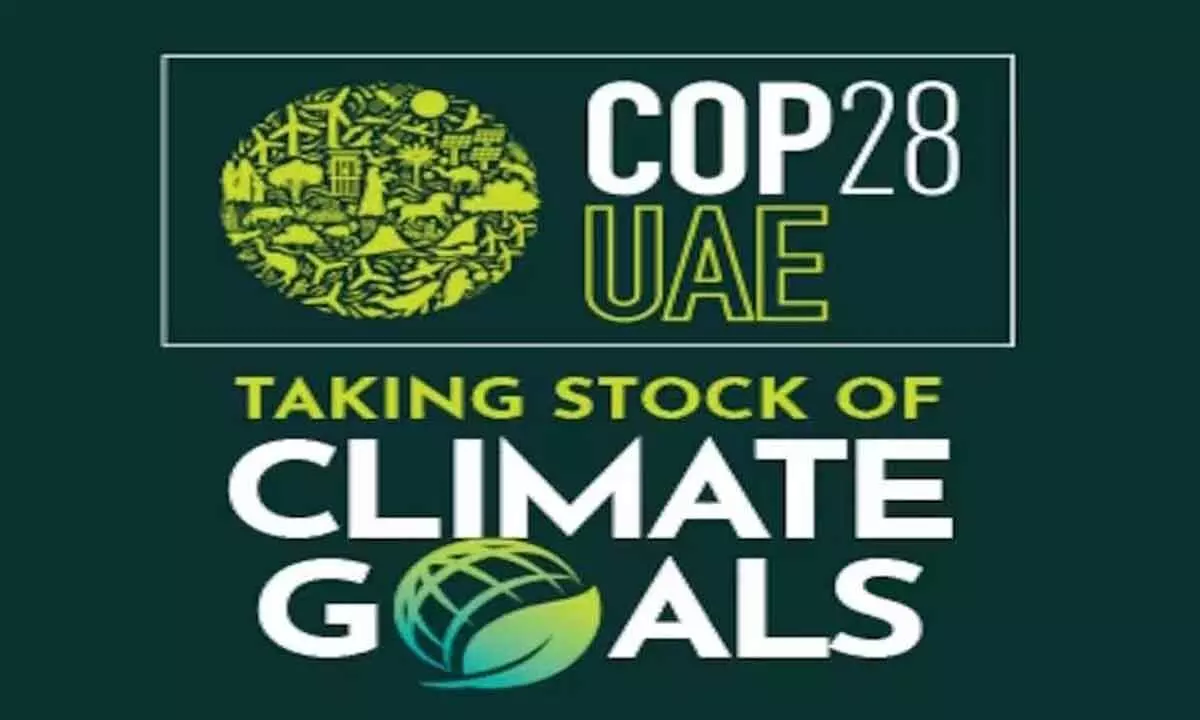‘India needs to flag misconception about global carbon emissions’
It must be corrected as trade-related activities account for only about 3% of global greenhouse gas emissions, says GTRI
image for illustrative purpose

The IMO has recently outlined a comprehensive strategy for decarbonizing global shipping, setting ambitious targets for 2030 and 2040, and aiming for net-zero emissions by 2050
Topics on Agenda
- Green trade policies, role of renewable energy in trade, and carbon pricing strategies
- WTO to focus on prioritizing its core mandate of regulating trade
- Pushing governments to integrate climate-friendly measures into their national trade policies
New Delhi: This is a complete misconception that exports and imports contribute significantly to global carbon emissions and India needs to flag this issue in the discussions on global trade and climate change in Dubai, think tank GTRI said on Sunday.
On December 4, United Nations climate change conference COP28 in Dubai is dedicating a day to explore the relationship between global trade and climate change. The World Trade Organization (WTO) is the co-lead of the Trade Day event. The primary goal is to nudge governments worldwide to integrate climate-friendly measures into their national trade policies, the Global Trade Research Initiative (GTRI) said in its report. Other potential topics of discussions include green trade policies, the role of renewable energy in trade, and carbon pricing strategies, it added. “India must highlight the misconception that trade significantly contributes to global emissions. It must be corrected as trade-related activities account for only about 3 per cent of global greenhouse gas emissions, not the often-cited 25 per cent,” the report said.
The other two important issues which India should raise include suggesting the 164-member Geneva-based global trade body WTO to focus only on prioritizing its core mandate of regulating trade, rather than overreaching into areas better managed by specialized agencies, such as the International Maritime Organization’s (IMO) efforts in decarbonizing global shipping; and highlight the potential conflicts of the Carbon Border Adjustment Mechanism (CBAM) with the Paris Agreement, it said. About correcting the misconception that trade significantly contributes to global emissions, GTRI Co-Founder Ajay Srivastava said that this discrepancy stems from a misinterpretation of trade-related emissions, which can be bifurcated into two primary categories.
“Firstly, emissions resulting from the transportation of goods, particularly via shipping, account for about 3 per cent of the global total. Secondly, emissions related to the production of goods – though occurring at the production site – are often mistakenly attributed to the trade process, thereby inflating its perceived environmental impact,” he added. He also said that the WTO’s fundamental role is regulating trade, rather than overextending into realms already effectively managed by specialized agreements or agencies. The IMO has recently outlined a comprehensive strategy for decarbonizing global shipping, setting ambitious targets for 2030 and 2040, and aiming for net-zero emissions by 2050, the think tank said.

